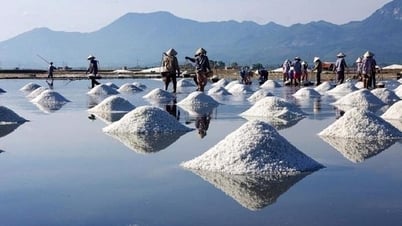Scientists have discovered a sudden and serious change around Antarctica: The Southern Ocean is getting saltier, causing sea ice to melt at a rate not seen in decades.
Since 2015 alone, the area of sea ice lost is equivalent to the entire island of Greenland – the largest decline ever recorded on Earth in recent times.
In the past, the surface of the Southern Ocean tended to cool, allowing sea ice to form and remain stable. But new research published in the journal Proceedings of the National Academy of Sciences shows that this trend has suddenly reversed: salinity has increased, allowing heat from deep water to rise and melt ice from below.
“This is a dangerous vicious cycle: less ice exposes more salt water, allowing heat to escape to the sea surface and further accelerating the melting process,” said Dr Alessandro Silvano, of the University of Southampton.
One telltale sign of this change is the reappearance of the giant Maud Rise polynya in the Weddell Sea – a patch of unfrozen water nearly four times the size of Wales. The phenomenon has been absent for 50 years and is now back, suggesting the environment around Antarctica is entering a strange new state.
The decline of Antarctic sea ice also has global consequences: the melting of sea ice, which reflects solar radiation, causes the ocean to absorb more heat, accelerating global warming.
At the same time, the habitat of penguins and many polar animals has been significantly reduced.
Many previous climate models predicted that Antarctic sea ice would persist for decades thanks to fading surface waters and more stable water stratification, said study co-author Aditya Narayanan.
However, the reality is that the ice melting process is happening faster than predicted, leading to the risk of stronger storms and rising sea levels.
Professor Alberto Naveira Garabato, University of Southampton, said: “These new findings raise big questions about the accuracy of current climate models. We need to increase satellite and in-situ monitoring to better understand the causes and rates of change.”
Experts warn that if the trend of salinization and ice loss continues, the Southern Ocean could enter a completely new state, with long-term impacts on the global ecosystem and exacerbating the climate crisis./.
Source: https://www.vietnamplus.vn/bang-nam-cuc-tan-nhanh-ky-luc-do-nuoc-bien-man-bat-thuong-post1047723.vnp





























![[Photo] Gia Lai provincial leaders offer flowers at Uncle Ho's Monument with the ethnic groups of the Central Highlands](https://vphoto.vietnam.vn/thumb/1200x675/vietnam/resource/IMAGE/2025/7/9/196438801da24b3cb6158d0501984818)







































































Comment (0)